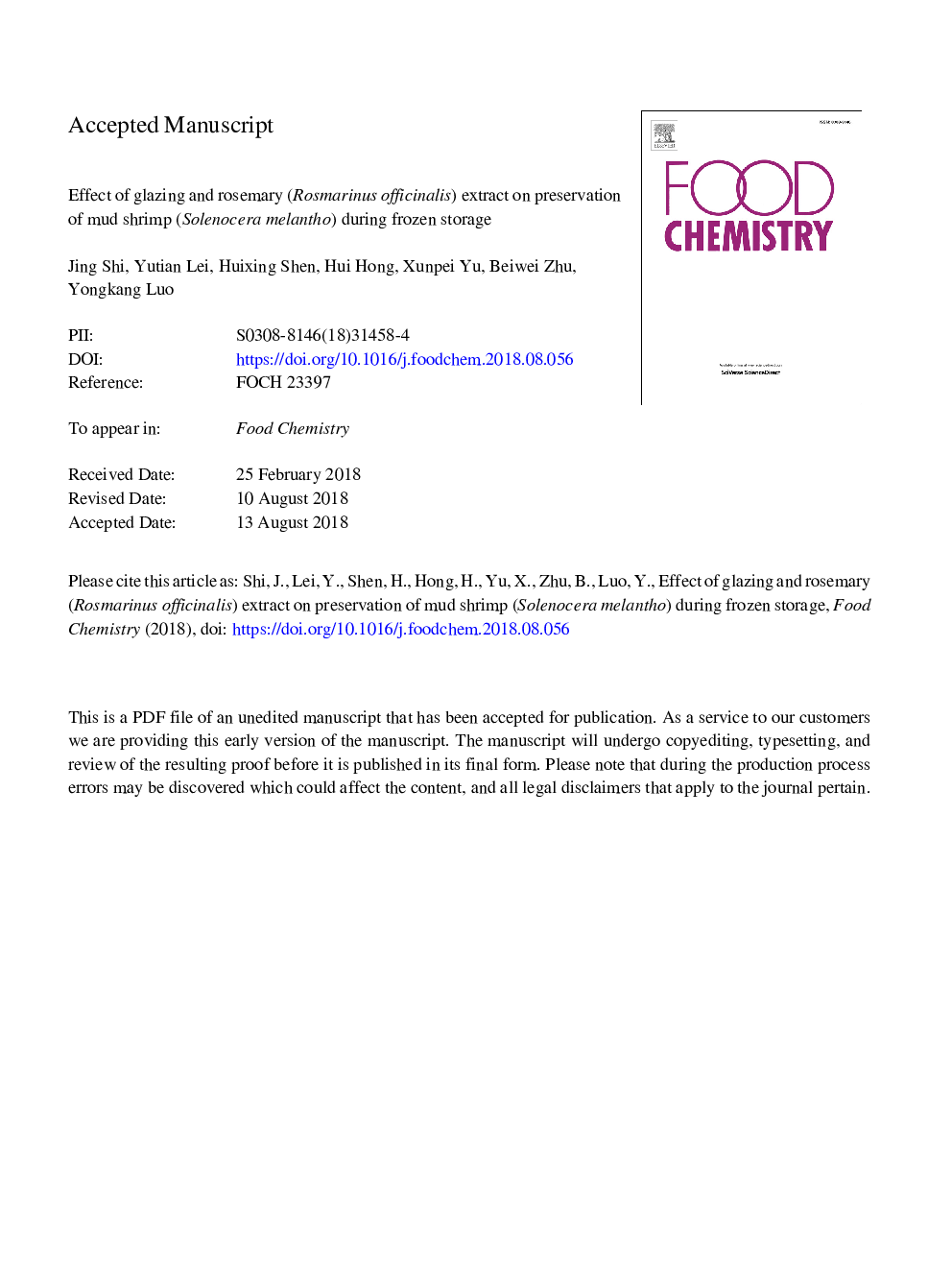| Article ID | Journal | Published Year | Pages | File Type |
|---|---|---|---|---|
| 11005643 | Food Chemistry | 2019 | 35 Pages |
Abstract
In this study, glazing with water and rosemary (Rosmarinus officinalis) extract were applied on frozen mud shrimp (Solenocera melantho) and stored at â20â¯Â°C for 24â¯weeks. Quality loss and protein and lipid changes of shrimp were evaluated by total volatile basis nitrogen (TVB-N), drip loss, moisture distribution, sulfhydryl content (SH), disulfide bond, intrinsic fluorescence intensity, lipid content, free fatty acids (FFA), peroxide value (PV), fluorescent compounds and sensory characteristics. Results showed that unglazed mud shrimp exhibited significant quality decline after 16â¯weeks of frozen storage. Glazing treatment significantly reduced quality loss, protein degradation, and lipid oxidative damage of shrimp during the 24â¯weeks of frozen storage, compared to the unglazed control sample. Glazing with rosemary extract was more effective in controlling quality changes in frozen mud shrimp with lower TVB-N, drip loss, PV, FFA and higher lipid content and sensory scores.
Related Topics
Physical Sciences and Engineering
Chemistry
Analytical Chemistry
Authors
Jing Shi, Yutian Lei, Huixing Shen, Hui Hong, Xunpei Yu, Beiwei Zhu, Yongkang Luo,
